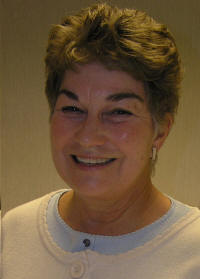
(11/14) As an ornamental and vegetable gardener all my adult life, I have always chosen to garden organically, or as I personally believe, to garden the way God intended. The whole idea of organic gardening is to greatly reduce your outputs (trash) by sustainably using everything your property produces.
When I vegetable gardened on the horse farm, we used copious amounts of aged horse manure on our huge plot, and our potatoes and cauliflower were amazingly over-sized. I had very little pest or disease problems, but I do remember some very large weeds! (Which I composted!). I still laugh at the day my sister refused to eat one of my tomatoes
because she realized it had grown in horse manure!
Recently, some friends and I had the good fortune to visit Forrest Pritchard’s farm, Smith Meadows, in Berryville, Virginia. Having read his book, gaining ground, it was exciting to actually visit the place we had read about. Here is a man who earns his living farming organically and sustainably! My hero!
Forrest Pritchard is a man who graduated from college with a degree in journalism and geology, but his dream was to find a way to save his family’s farm which had fallen deeply into debt using standard farming methods.
He decided that he had to find a better approach when he learned that after paying all the expenses for the season just past, their 350 acre farm had cleared $18.16, After several years of hard work, and suffering through some humorous mistakes and "learning opportunities", he finally arrived at raising grass fed livestock on organically managed
pastures and selling his meat and eggs at farm markets in and around Washington D.C.
In his book, he tells us he is the seventh generation farmer on this same land. He talks about the rich, soft, earthy aroma of the soil, and the connection he is able to feel with his ancestors as he breathes it in. He expresses the great satisfaction he derives working in harmony with the land. A man after my own heart!
He speaks of the beauty of nature on the farm. "The breathtakingly beautiful mornings in early September when mist lingers over the emerald-green pastures, droplets of dew caught in the gossamer of the web of a yellow and black garden spider sparkling opalescent in the first light of dawn." And, "After a good night’s sleep, waking up to a Bing
Crosby-esque winter wonderland. Sunlight glittering against the sweeping snow, reflecting golden light from the highest tree branches." The man is a poet!
He took a look at the traditional farming methods of holding animals within a rather small portion of the farm, and using the rest of the land to grow crops and hay. Harvested crops rob the soil of nutrition forcing the farmer to buy chemical fertilizer to replace those lost nutrients, adding significantly to his expenses. In addition, he has a
huge amount of time and money invested in owning and repairing his equipment. Forrest realized this was what had driven his family farm deeply into debt.
He decided to buy his hay, and sold off his equipment using the money to reduce the debt. Then he divided his land into pastures through which he could rotate his cattle. His pastures were each about fifteen acres, and he moved the cattle every day. He also rotated pigs, sheep and even chickens in the same way.
He found that by rotating his livestock through fresh, lush pasture grass, he had no need for antibiotics, hormones or even grain. His pastures lasted longer through the winter months which greatly reduced his need for hay. His meat is strictly grass-fed. The animals fertilize the fields, pulverizing the manure into the soil with their hooves, so
there is no need to add any type of chemical fertilizer. He has no feeding pens or holding lots where animals congregate so he mentions that he has no unpleasant odors.
Near the end of the book, he tells us, "I finally learned to manage the farm with only the barest of inputs. I dreamed of a farm that was self-fertilizing, drought-resistant, and sustainable both economically and environmentally. "
So what does Forrest Pritchard mean by his title, gaining ground? Well, he says, "Instead of taking, we were leaving. Green space was restored to the landscape, and airborne carbon was recycled into the earth, building new topsoil for future fertility. We were literally gaining ground."
In the foreword to the book, Joel Salatin points out that farming is basic to man’s existence. He writes, "Because it is at the root of civilization, it has perhaps the greatest capacity to either heal or hurt humankind’s planetary nest. As co-stewards of this great creation, we all owe future generations the benefit of knowing something about
farming, food production, and land care."
I heartily recommend this book to anyone who loves the soil. It is an interesting, amusing look at a young man’s dreams, and how he made those dreams a reality by listening to the rhythms and wisdom of the earth. It offers some great ideas to anyone who owns a plot of land and wants to help preserve that land for future generations.
Read other articles by Barbara Mrgich